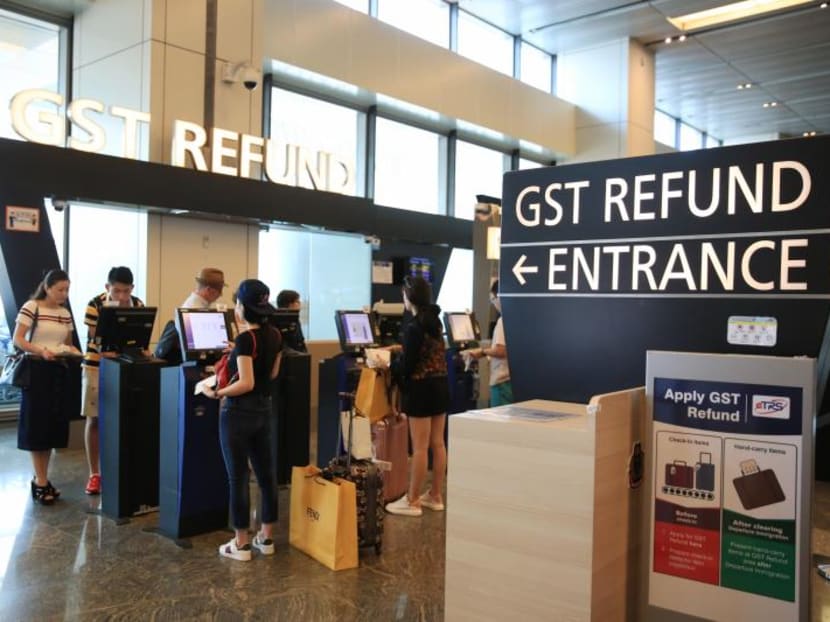Ex-Singapore Customs officer jailed for pocketing tourists’ GST refunds
SINGAPORE — His job was to process Goods and Services Tax (GST) refund claims made by tourists. But former Singapore Customs officer Li Xiangqing ended up cheating them and pocketing the money instead.

Ex-Singapore Customs officer Li Xiangqing's ruse was to reject some claims and process the GST refunds into his own credit cards or that belonging to his friend. TODAY File Photo
SINGAPORE — His job was to process Goods and Services Tax (GST) refund claims made by tourists. But former Singapore Customs officer Li Xiangqing ended up cheating them and pocketing the money instead. His ruse was always the same: he would reject some claims and process the GST refunds into his own credit cards or that belonging to his friend.
This went on over a period of eight months between 2011 and 2012. When his actions were uncovered, he had pocketed a total of S$52,441.17.
On Friday (Feb 9), the 34-year-old was convicted of 10 charges for GST fraud. He was sentenced to 18 months’ imprisonment and ordered to pay a penalty of S$92,284.89. Another 44 charges were taken into consideration during sentencing.
This is one of two cases involving a customs officer committing GST fraud. Pang Yeo Biah, 61, who had allegedly committed a similar offence between 2012 and 2014, faces 43 charges for GST fraud.
She also faces another 38 charges under the Corruption, Drug Trafficking and Other Serious Crimes Act for allegedly using the money obtained from the GST refunds to offset her credit card expenses. Pang’s case, which was supposed to be heard on Friday, was adjourned so that she can get a lawyer. She will appear in court again in March.
When both Li and Pang were first charged last September, the authorities said that they had stopped working for Singapore Customs in March 2015.
In Li’s case, court documents stated that he first started to obtain fraudulent GST refunds on Nov 13, 2011. This continued till Aug 6, 2012.
He would inform some tourists that their claims for GST refunds have been rejected and would keep their eTRS tickets. Such tickets are generated from an eTRS terminal located in a GST-registered retailer’s shop.
At Changi International Airport, tourists can claim the GST refund by using an eTRS self-help kiosk or approaching a customs officer at the GST Refund Inspection Counter.
When the passenger traffic at the inspection counter was low, Li would use the eTRS computer system to claim the eTRS tickets of tourists which he had kept and include either his credit card details or that belonging to his friend.
If the ticket did not show the tourist’s details such as name or passport number, he would process the claims using the details of other tourists or details of his former girlfriend.
Once the claims have been processed, Li would dispose of the notification slips generated after a claim is made, as well as the eTRS tickets.
Reflecting that the crime committed by Li was premeditated, the Inland Revenue Authority of Singapore (IRAS) Senior Tax Prosecutor Norman Teo pointed out that back in 2011, Li had asked his friend to apply for an OCBC credit card.
Li’s intention was to use the credit card to receive the fraudulent GST refunds, but he lied to his friend that it was to “mask his moonlighting business” as he was then still working in Singapore Customs. In addition to the OCBC credit card, Li himself owned four credit cards.
Mr Teo noted that Li had held on to the OCBC credit card when he carried out the offences, and would use money from the GST refund to make purchases. Other than that, Li had also asked that an excess sum of S$11,400 in the credit be transferred into his friend’s bank account. His friend later withdrew the money and passed the cash to Li.
It was only in September 2014 that IRAS detected suspicious eTRS claims approved by customs officers, said Mr Teo.
Calling for Li to be sentenced to 20 months jail, Mr Teo noted that Li had abused his position as a customs officer and committed a fraud against a public institution since IRAS oversees the eTRS computer system. The fraudulent funds that Li obtained came from the “Government’s coffers”, added Mr Teo.
Pleading for leniency, Li’s lawyer Lee Chin Seon told the court that his client had made a full restitution of the money that he illegally obtained and regretted his actions.
In her sentencing remarks, District Judge Ong Luan Tze said that Li had “embarked on a carefully planned enterprise” and misused the trust placed on him as a customs officer.
Li will start serving his jail sentence on Feb 23.






